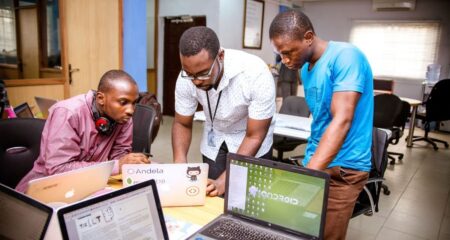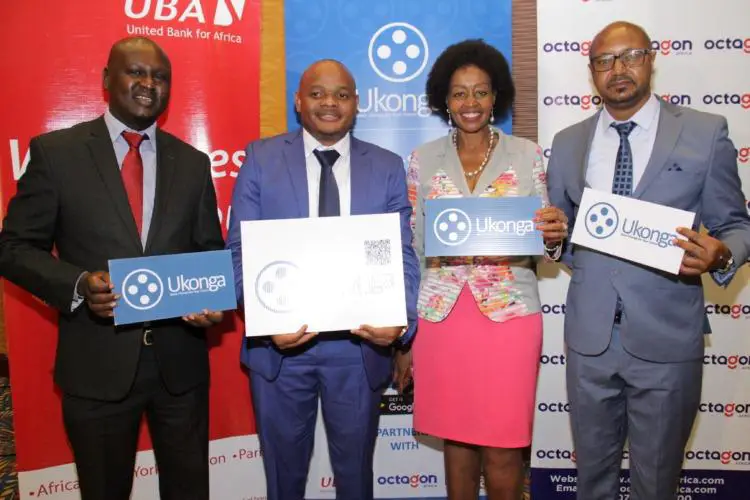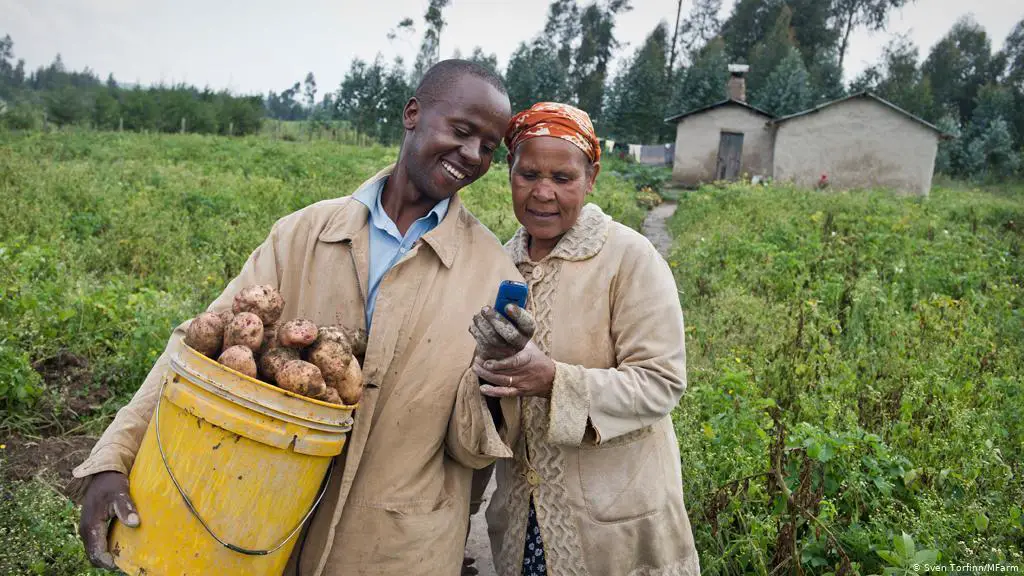- Agribusiness could drive Africa’s economic prosperity
- Dawood Al Shezawi: Why AIM Congress 2024 is the epicenter of global economic and cultural dialogues
- d.light’s 600,000 cookstoves project verified as top source of quality carbon credits
- Artificial intelligence (AI) could create a turning point for financial inclusion in Africa
- AIM Congress 2024: Catalysing global investments with awards
- Kenya’s economic resurgence in 2024
- The most stressful cities to live in 2024 exposed
- Tech ventures can now apply for the Africa Tech Summit London Investment Showcase
Browsing: Fintech in Africa
As a form of private equity funding, venture capital finance African startups at the nascent stage. Money is given to firms with significant growth and revenue creation potential. Across economies, VC firms are critical drivers of growth and development in Africa. They drive job creation and innovation and finance the rollout of new products and technologies.…
- African tech startup funding received $3 billion in 2022, highlighting the growing significance of the industry among potential financiers.
- Africa’s share of global blockchain funding, however, remains modest, increasing from 0.3 percent to 1.8 percent between 2021 and 2022.
- Seychelles’ gained $208 million for six deals while and South Africa earned $176.6 million from the same number of blockchain deals.
Blockchain startups in Seychelles and South Africa received nearly all the fresh funding raised in the segment in 2022. A new report shows blockchain startups from the two countries shared 81 percent of the $474 million fresh funding realized last year.
According to the African Blockchain Report 2022 by venture capital firm VC VC, startups in this segment are well within the fourth Industrial Revolution and are projected to play a huge role in Africa’s tech industry.
In 2022, Africa’s tech industry grew significantly as more investors poured millions of …
- McKinsey report found that fintech in Africa is the fastest-growing startup industry, raising over US$1.3 billion in 2021
- The industry is being supported by several trends, including smartphone ownership, declining internet costs, and a young, fast-growing, and rapidly urbanising population
- Cash is still used in around 90% of transactions in Africa, which means that fintech revenues have huge potential to grow
- The top challenges that fintech may face include reaching scale and profitability, navigating an uncertain regulatory environment, managing scarcity, and building robust corporate governance foundations
A new finding named fintech in Africa as the fastest-growing startup industry, raising over US$1.3 billion in 2021.
McKinsey & Company found that the industry is being supported by several trends, including smartphone ownership, declining internet costs, expanded network coverage, and a young, fast-growing, and rapidly urbanizing population. Further, the COVID-19 pandemic has also accelerated existing trends toward digitalization and created a fertile environment …
Africa is a land of opportunity, and over the past few years, many young entrepreneurs and investors have become millionaires by starting businesses and investing in lucrative sectors. This year is no different, and there are several startup ideas in Africa that have the potential to make even more millionaires in the coming years.
In this article, we will share with you some of the top startup ideas that are making millionaires in Africa. These startup ideas include agribusiness, healthcare, tourism, and technology startups.

Mobile Payments and Fintech
Some of the top innovations in Africa include mobile payments, e-commerce, agribusiness, health care, and tourism. These businesses are thriving because of the continent’s growing economy and burgeoning middle class. In addition, they are benefiting from innovative technologies that are making it easier for people to do business across borders.
Mobile payments is one of the most exciting startup ideas in Africa …
Nairobi is the leading Fintech ecosystem city in Africa according to the 2021 Global Fintech Rankings published on 8th July 2021 in which it jumped 26 places to the 37th position globally beating both Lagos and Accra[1]. Kenya’s President, His Excellency Uhuru Kenya stated at a UK summit that “Nairobi International Financial Centre (NIFC) has come of age to be the leading financial hub on the continent”[2]. Kenya is making a major incursion to position itself as the financial hub of Africa on the back of its fintech advantage as President Uhuru Kenyatta signed a $184 million deal with Dominic Raab, Secretary of State for Foreign, Commonwealth and Development Affairs and First Secretary of State of the UK during his three-day official visit to that country[3]. Kenya’s leadership of the Fintech world in African gives it the impetus to be an international …
On 1st of April, as I was publishing my Uniconization of African Fintech piece[1], Mastercard was busy announcing their $100 million investment into Airtel Money (Airtel Africa’s mobile money subsidiary) to acquire a minority position – half what TPG Capital did[2]. Even though I had gotten wind of the transaction knowing that Mastercard was already in bed with Airtel Money[3] – some part of me thought of it as an April fools joke…. On the 12th of April 2021, Mobile Telecom Network (MTN) announced the valuation of their mobile money business at $5 billion making it the 7th African fintech unicorn with plans to bring in minority shareholders before going public[4]. Given that Visa is already in bed with MPESA (Vodacom and Safaricom’s mobile money business)[5], it is a matter of time before Visa also invests. The unicornization …
Fintech has the potential to revolutionize the African financial services landscape. Already mobile payments and microloan technologies are taking root rapidly across the continent.
The success of mobile money provider M-Pesa in many countries such as Egypt, Ghana, India, Kenya, Lesotho, Mozambique, Romania, and Tanzania among others is an example of the potential of fintech on the continent.
Read Also: Mobile money making Africa bankable
Financial Inclusion
In Africa access to traditional financial services is limited. Transaction costs with banks are usually very restrictive. This coupled with poor infrastructure, lack of employment and rural environments has created room for fintech innovators in financial services provision.
62% of the African population remains un/underbanked. Mobile phones are relatively more accessible which has increased the reach of mobile money services. In sub-Saharan Africa mobile money transactions account for 10% of the region’s GDP against an average of 2% in other economies; this …
It is unfair to mention African development pillars without mentioning the agriculture sector which employs nearly half of the population of sub-Saharan Africa (SSA).
The sector has enormous benefits to the continent, where farmer-centred organizations such as AGRA (Alliance for a Green Revolution in Africa) argue that nearly one-half of the young population is involved in the continent’s 60 million farms.
It is with no doubt that African farms stand to be the next profitable food market suppliers of the world.
“Out of total urban food sales of roughly US$200 to US$250 billion per year, over 80 per centcomes from domestic African suppliers,” according to AGRA.
Nearly 23 per cent of SSA’s GDP comes from agriculture (McKinsey, 2019); the sector is responsible for providing decent income, growth and poverty reduction for SSA.
The region’s food market was valued at $300 billion in 2017 and it could be …
Nigerian fintech start-up, Aella has raised a $10m debt financing round, from HQ Financial Group (HQF), Singapore-based private company specializing in new material science, semiconductor and blockchain financial investments.
This debt financing round is Aella’s second raise and will bolster the company’s commitment to serve the underbanked population in West Africa and other emerging markets. The FinTech is focused on improving financial inclusion for West Africa’s low-income segment.
Aella was founded in late 2015 by Akin Jones, CEO and Akanbi Wale, CTO in Lagos, Nigeria and has remained committed to building trustworthy credit for emerging markets with an initial focus on Nigeria and the Philippines, where the company is licensed to operate. Aella has made a visible impact on the lives of more than 300k borrowers across its Employer Backed and Direct to Consumer Verticals, who now have access to simple financial products.
For millions of poor and low-income households, …













